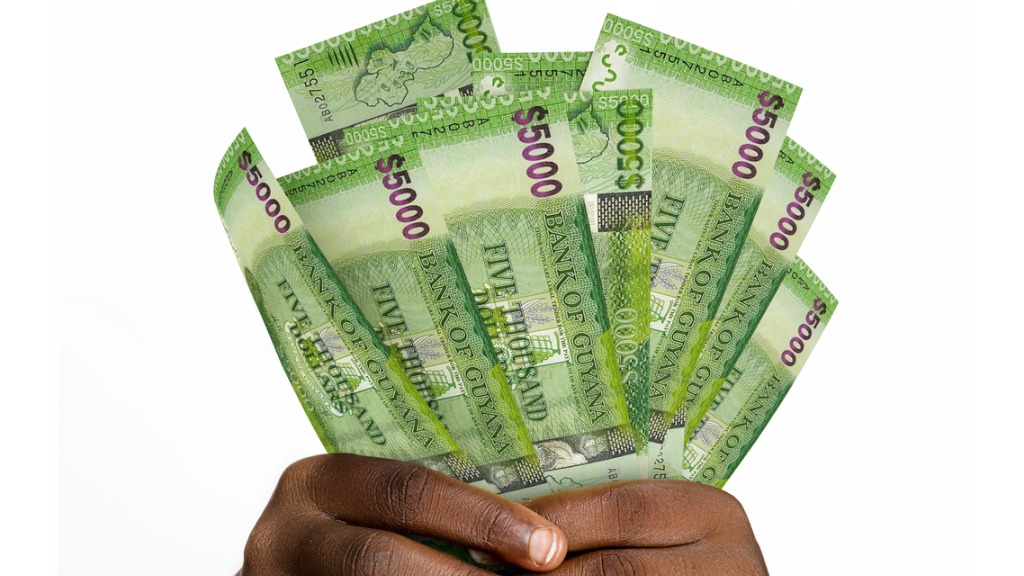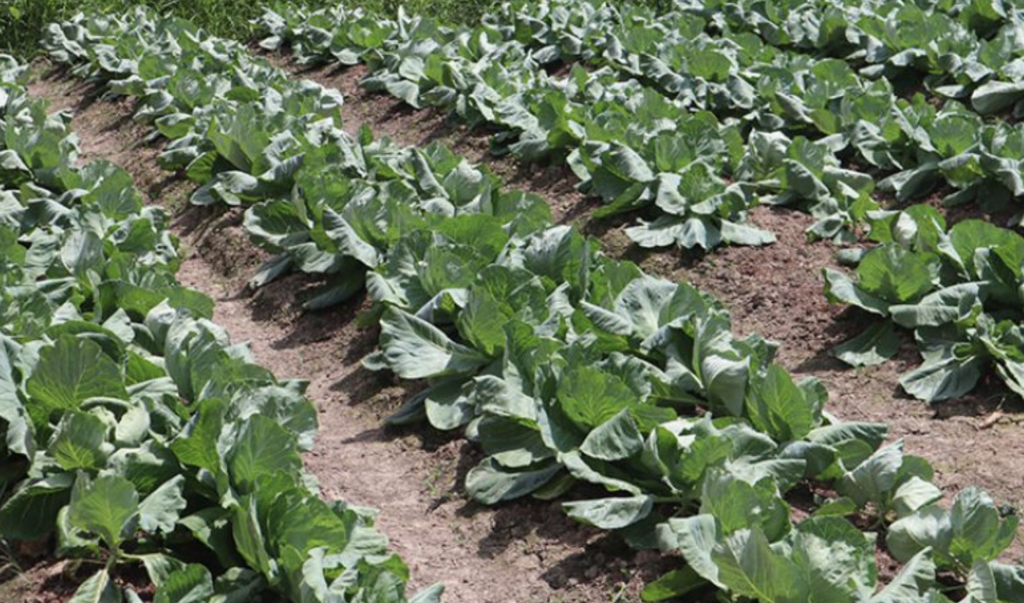
by Rennie Parris
In an exciting move, the Government of Guyana has announced that every adult citizen will receive a $100,000 cash grant. While this grant could be spent on immediate needs, it also offers an incredible opportunity for people to pool their resources and build businesses that could lead to long-term financial stability. Imagine if you and three or more family members or friends combined your grants—you’d have at least $400,000 to invest in a small business. With the right planning and teamwork, this pooled money can be the foundation for a thriving business.
Today, let’s explore how you can turn that pooled grant money into profitable ventures such as poultry farming, small-scale baking, mobile food carts, and even personal service businesses like landscaping or beauty services. We’ll also dive into the potential of pig farming and a chair, table, and tent rental business. Plus, we’ll discuss how to register your business, stay compliant with the authorities, and extend your funding through the Small Business Bureau (SBB).
Why Pooling Your Cash Grant Makes Sense
Pooling your cash grant with others offers several advantages. Firstly, it increases your purchasing power, allowing you to buy essential equipment, supplies, or ingredients that might be out of reach with just $100,000 alone. Secondly, by sharing resources, you reduce the risk for each person, and thirdly, you create a support system where everyone contributes different skills, making the business stronger.

Now, let’s look at some business ideas that you can start with $400,000 or more and the resources you’ll need to get going.
1. Pig Farming
Pig farming can be a highly profitable venture in Guyana, given the growing demand for pork. With $400,000, you could set up a small-scale pig farming operation.
- Initial Setup: The main costs will go toward purchasing piglets, feed, and building or renting a small pen. You can start with some piglets. With $200,000, you could purchase several piglets, leaving the rest for feed, housing, and veterinary care.
- Resources Needed: A simple pen with proper fencing, feeding equipment, and a water supply is essential. You’ll also need to budget for feed and veterinary care to ensure the pigs grow healthy and fast.
- Benefits: Pigs grow quickly and can be ready for market within 5-7 months. With a small number of pigs, you could begin selling pork locally, with plans to expand as the business becomes more profitable.
2. Poultry Farming (Meat and Eggs)
Poultry farming is another great business to start in Guyana, given the local demand for fresh chicken and eggs. With $400,000, you could invest in the basics for a small-scale poultry farm.
- Initial Setup: You’ll need to buy chicks (for meat or egg production), chicken feed, and build or rent coops. For meat production, you could start with about 100 chicks, leaving room for feed and housing.
- Resources Needed: Basic chicken coops, feeders, waterers, and feed will be your primary costs. You’ll also need a reliable water supply to keep the birds healthy.
- Benefits: Poultry farming has quick returns as chickens grow in 6-8 weeks for meat or start laying eggs in 4-6 months. You could start selling eggs or meat at local markets within a short period, and as your flock grows, your business could scale.
3. Mobile Food Cart
Mobile food carts are incredibly popular for selling snacks, beverages, and light meals. With $400,000, you could buy a cart or materials to make a cart and the initial supplies you need.
- Initial Setup: The majority of your funds will go toward purchasing or making a cart, cooking utensils, and initial ingredients.
- Resources Needed: You’ll need a reliable cart, basic cooking equipment (grill, fryers), ingredients for your menu items, and a health permit from the local authorities.
- Benefits: The mobility of your food cart means you can move to busy areas like marketplaces, schools, or business districts. Plus, it’s a low-overhead business that can grow quickly once you build a customer base.
4. Baking Business
If you have a passion for baking, a baking business is a fantastic idea. From bread and pastries to cakes and cookies, there’s always demand for freshly baked goods.
- Initial Setup: $400,000 can cover the costs of a good oven, baking supplies, and initial ingredients. You could also rent kitchen space if needed.
- Resources Needed: You’ll need baking equipment like an oven, mixers, and utensils. Ingredients (flour, sugar, yeast, etc.) will be your recurring cost. You can start by selling at local markets or supplying shops.
- Benefits: Baking businesses often see high-profit margins because the ingredients are inexpensive, but the final product is sold at a premium. You can grow by offering custom cakes or catering to events.
5. Beauty Service Business (Hair, Nails, Makeup)
With the rise of personal care, a beauty service business could be a profitable venture. Offering services like hairstyling, nail care, or makeup can attract a steady clientele.
- Initial Setup: $400,000 can buy you basic tools for hairdressing or manicures/pedicures. You can even rent a small space or operate from your home.
- Resources Needed: Hairdryers, clippers, scissors, manicure sets, nail polish, and makeup kits will be your primary investment. Additionally, you’ll need training if you don’t already have the skills.
- Benefits: Personal care businesses often have repeat clients and can grow through word-of-mouth referrals. Plus, you can offer packages for special events like weddings or parties.
6. Chair, Table, and Tent Rental Business
Event-related services, such as a chair, table, and tent rental business, can provide steady income, especially during wedding seasons or public events.
- Initial Setup: With $400,000, you could purchase enough chairs, tables, and tents to cater to small gatherings. Start with a few dozen plastic chairs, a couple of foldable tables, and a small tent.
- Resources Needed: Besides the actual equipment, you’ll need a place to store the rentals when they’re not in use. You’ll also need to maintain the items to ensure they remain in good condition.
- Benefits: This business has low overhead once you’ve made the initial investment, and you can continue renting the same items out multiple times, generating consistent income.
7. Wash Bay Business
Given the growing number of cars on the road, a wash bay business can be a solid investment with long-term potential.
- Initial Setup: A basic setup with hoses, cleaning agents, and water tanks can be established for $400,000. You can either rent a small space or use an open area.
- Resources Needed: You’ll need high-pressure hoses, soap, cleaning agents, and water storage. Additionally, hiring one or two workers can help you manage multiple customers.
- Benefits: Car washing services are always in demand, and if you build a good reputation, you can add extra services like waxing or interior detailing for additional revenue.
8. Small-Scale Farming

Small-scale farming is one of the most rewarding and essential businesses in Guyana. With $400,000, you could start a farming venture focused on vegetables, fruits, or even herbs, which are always in demand at local markets.
- Initial Setup: Depending on the crops you choose, a portion of the funds will go toward securing a small plot of land (if you don’t already own one) or leasing a plot. The rest of the funds will be spent on seeds, fertilizers, tools, and water supply systems.
- Resources Needed: You’ll need basic farming tools like hoes, spades, watering cans, and seeds. Fertilizers and organic pesticides will help boost your yield. If you’re growing crops that require irrigation, some funds may need to be invested in a water pump or drip irrigation system.
- Benefits: Small-scale farming can be a relatively low-cost venture with consistent returns. Once your crops are ready for harvest, you can sell them at local markets or supply restaurants and grocery stores. This type of business can also be scaled by reinvesting profits into purchasing more land or expanding your crop variety.
Next Steps: Setting Up Your Business Legally
Once you’ve pooled your funds and decided on your business, there are a few key steps you need to take to ensure everything runs smoothly:
- Register Your Business: The first thing you need to do is register your business with the Deeds Registry or Registrar of Companies. This gives your business legal standing and protects your brand.
- Register with the Small Business Bureau (SBB): The SBB offers various resources and incentives to small businesses, including loan guarantees and grants. Once registered, you can access training, business development services, and funding support.
- Compliance with GRA and NIS: Make sure your business is compliant with the Guyana Revenue Authority (GRA) and National Insurance Scheme (NIS). Registering your business with these organizations ensures that you are operating legally and paying taxes and social security for your employees.
- Apply for Loan Guarantees from the SBB: The Small Business Bureau can help extend your funding by providing loan guarantees. This means that if you want to expand your business or buy additional equipment, the SBB can help secure financing from local financial institutions.
Final Thoughts
The $100,000 cash grant from the Government of Guyana is more than just a financial boost—it’s an opportunity to invest in your future. By pooling your grants with others, you can start a business that not only creates financial stability but also contributes to the local economy. Whether it’s poultry farming, baking, pig farming, or a chair rental business, the possibilities are endless.
Until next time, keep making smart financial moves, and remember—your future is in your hands.













You must be logged in to post a comment Login